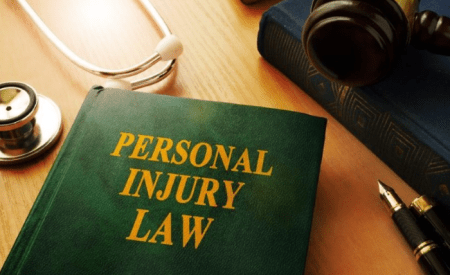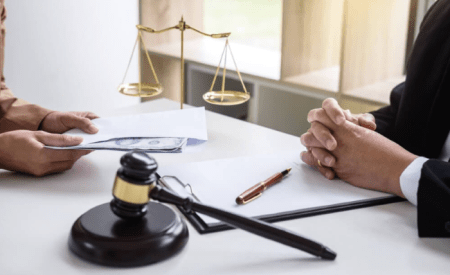Understanding Depositions
A deposition is a testimony given under oath outside of the courtroom, typically involving the parties involved in a lawsuit such as a car accident case. During a deposition in a car accident case, attorneys from both parties question witnesses or the individuals directly involved to collect detailed information about the incident. This pre-trial process is integral as it aids in gathering sworn evidence that might not be available through other means. The testimony during a deposition can significantly affect how attorneys prepare and strategize for trial or settlement negotiations.
Depositions are a part of the discovery phase, where each party seeks to “discover” the facts of the case. The information obtained can reveal strengths and weaknesses in both parties’ positions, often setting the stage for settlement or further legal action. For instance, in a case involving stolen auto parts, such as disputes over the catalytic converter price, depositions can uncover critical evidence related to valuation or intent. Not only do depositions provide a platform for gathering evidence, but they also allow attorneys to assess the demeanor and credibility of witnesses, which can be pivotal if the case goes to trial. This step ensures that all parties are on the same page concerning the facts and testimonies involved in the case.
Preparing for Depositions
Preparation is key to a successful deposition. Ensuring you or your client is thoroughly prepared can significantly influence the case’s outcome. Begin by reviewing the case file meticulously, ensuring you comprehend all documentation, testimonies, and evidence at hand. Familiarity with the case facts enables witnesses to provide clear, concise answers. It reduces the chance of contradiction or inconsistency under pressure.
Attorneys often simulate deposition scenarios with their clients to alleviate anxiety and prepare for likely questions. Role-playing typical questions enables clients to practice delivering precise answers without inventing information when unsure. This preparation can involve drafting potential responses to common questions related to the accident, injuries sustained, and the aftermath to avoid being caught flatfooted during fundamental questioning. Apart from verbal preparation, dressing appropriately for a deposition can also positively influence perceptions, exuding a sense of seriousness and respect for the legal process.
Strategies Used in Depositions
Depositions aren’t casual conversations; they require strategic questioning and answering. Lawyers deliberately pose open-ended questions to reveal detailed narratives, sometimes drawing out unintended revelations critical to the case. Such strategies ensure witnesses provide expansive accounts that lawyers can scrutinize and dissect further.
Conversely, specific yes/no questions aim to pin down witnesses on critical points, making it harder to pivot without contradicting previous testimonies. These strategies demand alertness and careful listening from all parties involved. Understanding these techniques through insightful resources on courtroom procedures helps witnesses anticipate the terrain of deposition questioning, potentially making their testimonies more robust and reliable.
Post-Deposition Steps
After deposition, the transcript—a word-for-word account of the testimony—is generated and becomes a critical tool. Both legal teams should examine this transcript carefully to identify any discrepancies or inconsistencies in the testimonies provided. Such inconsistencies can be used strategically during trial or settlement talks, often significantly influencing outcomes.
This generation of evidence becomes a part of the legal strategy going forward, guiding crucial decisions like settlement negotiations or additional witness depositions. Validating the accuracy of the deposition transcript is essential, as errors can jeopardize the integrity of the legal arguments and potentially lead to unfavorable legal outcomes if left unchecked.
Common Deposition Pitfalls
Despite thorough preparation, witnesses sometimes face pitfalls during depositions. One frequent mistake is over-explaining or straying from the question, which might lead to unintended disclosures that exploit a party’s vulnerability. Remaining on topic and keeping answers concise is vital.
High emotions can also skew the testimony, leading witnesses to provide angry or defensive responses that attorneys can exploit. To maintain credibility and the integrity of the deposition, it’s prudent to remain calm, composed, and focused on the facts.
Real-World Impact of Depositions
The implications of depositions extend beyond the deposition room. Their impact often defines the course of a car accident case, directly influencing settlements or the likelihood of proceeding to trial. A strong and credible deposition can pressure opposing parties to reach a favorable settlement, often avoiding the time, expenses, and uncertainties of a court trial.
Legal proceedings documented on legal news outlets frequently illustrate how well-conducted depositions lean towards such advantageous resolutions. Depositions equipped with solid testimonies aid in clarifying disputed facts and lay the groundwork for swift resolutions, which otherwise might drag on indefinitely.
Expert Insights on Depositions
Soliciting expert insights on handling depositions can be gleaned from various legal professionals, emphasizing critical factors such as articulation, patience, and thoughtful listening. Lawyers find it beneficial for clients to pause briefly before responding to consider their answers’ implications and ensure they remain aligned with documented facts.
Rehearsing the delicate art of handling unexpected questions also cultivates the ability to remain unfazed throughout the process, enabling a more authoritative and convincing deposition performance.







